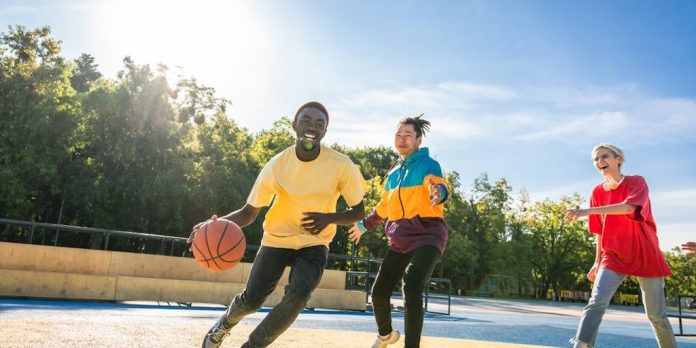“It could be wonderful if the boys had been capable of finding their voices and develop confidence earlier than they go into highschool,” my supervisor remarked throughout a significant dialog about Black boys in our college.
She expressed real concern in regards to the challenges many workers members confronted in successfully regarding and supporting Black boys. She famous that the boys would usually have emotional outbursts at school, and when confronted about their conduct, they’d turn out to be unresponsive and disengaged. This lack of engagement was evident as they averted eye contact by wanting down, fiddling with their fingers and appeared usually disinterested within the dialog. Their reluctance to talk up was additional highlighted by their low, hesitant voices and obvious skepticism about expressing themselves.
Partaking Black boys successfully in conversations about emotional wellness requires a deep understanding of their distinctive experiences and cultural backgrounds. Culturally related approaches are important in supporting their emotional improvement and fostering a way of belonging. These behaviors created a major barrier to workers understanding the scholars’ wants and offering the mandatory help, underscoring the significance of creating extra culturally responsive and empathetic approaches.
Initially, at any time when particular person college students bumped into emotional outbursts, I attempted conventional strategies like distributing worksheets centered on psychological well being and wellness. Nonetheless, these worksheets merely listed definitions and coping mechanisms with out offering participating content material or alternatives for significant dialogue. It turned evident that these approaches weren’t resonating with college students. Digging deeper, I found a shared ardour for basketball among the many boys who had been anticipated to be part of the group.
“Leveraging this curiosity may very well be key,” I proposed within the subsequent assembly with my supervisor; with their help, I launched the “Discuss it Out Basketball” program as a option to mix their favourite pastime with significant discussions on emotional expression and self-worth. This initiative allowed them to really feel heard and valued — and gave lecturers and directors a chance to find a brand new methodology that may assist handle the psychological well being disaster of Black boys within the classroom.
Taking part in By means of It
Recognizing the pressing have to create a protected house the place these boys may thrive, I began an eight-week “Discuss it Out Basketball” program just a few months in the past, with 5 boys from the seventh and eighth grades. This program aimed to mix their ardour for basketball with significant discussions on emotional expression and self-worth. The primary week started with a circle gathering, the place I launched this system’s idea, emphasizing the significance of making a protected house for open dialogue.
To interrupt the ice, we began with questions associated to their favourite elements of basketball and what the game meant to them, fostering a way of camaraderie and belief throughout the group. As we progressed by means of this system, every session delved into particular themes essential to their emotional improvement, together with id exploration, illustration, goals and aspirations, self-expression, empowerment and demanding interior voice evaluation.
College students eagerly lined up on the court docket for the sport rounds throughout every session. Questions associated to confidence and vanity had been posed, with various issue ranges. For example, questions like, “Have you ever ever let a concern of failure maintain you again from one thing new? How did you overcome it?” challenged them to confront private obstacles and share methods for resilience. Every appropriate reply earned factors for his or her group, which inspired wholesome competitors and teamwork.
On the finish of every session, I offered a chance for college students to debrief for 5 minutes, share their ideas and emotions and replicate on what they discovered about themselves and one another, figuring out affirmations and setting private objectives for development.
Enriching Lives One Basketball at a Time
The highly effective affect of the “Discuss it Out Basketball” program was evident within the transformative experiences of the contributors. A transparent signal of its success unfolded when a pupil, beforehand hesitant to vocalize his feelings, mustered the braveness to method his dean and request a fidget toy throughout moments of overwhelm — an surprising act of self-advocacy that signaled a outstanding shift in his emotional consciousness and coping methods.
This singular occasion not solely exemplifies this system’s capability to empower people to say their wants but additionally underscores its broader mission of fostering a tradition of openness and help amongst college students.
Furthermore, lecturers reported observations of heightened engagement amongst college students who participated in this system; even when they didn’t know the solutions to questions at school, they nonetheless made an effort to contribute. Such outcomes spotlight the significance of culturally related approaches in nurturing emotional resilience and fostering a way of belonging amongst marginalized youth.
By seamlessly integrating basketball, a well-known ardour, with structured discussions on id, self-expression and empowerment, this program not solely enriched the lives of the contributors but additionally set a precedent for holistic, community-driven interventions in Black male youth improvement.
It’s essential to acknowledge that Black boys should not a monolithic group; whereas basketball could resonate deeply with some, it might not essentially be the best method for each cohort. This emphasizes the significance of initiating conversations with college students to grasp their pursuits and preferences, thereby guaranteeing that interventions are each culturally related and personally significant.
By actively involving college students in shaping their academic experiences and bringing parts of their identities into the college house, we foster a way of possession and belonging that’s important for holistic well-being and tutorial success.


